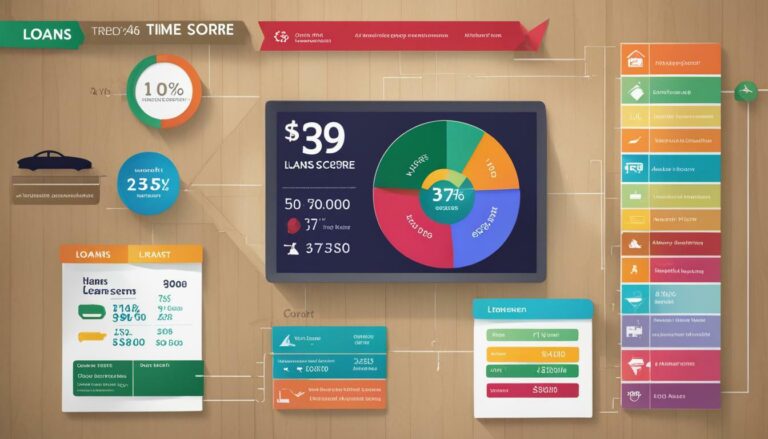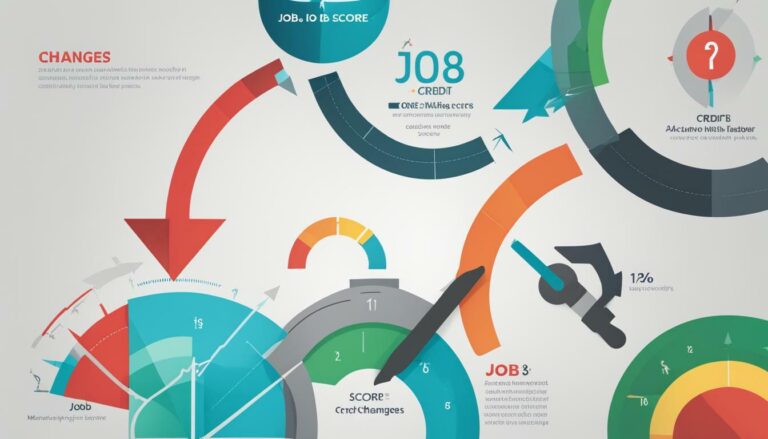Understanding the Impact of Credit Scores on Loan Approvals

When applying for a loan, it is crucial to understand how credit scores can significantly impact the approval process and shape your financial future. Lenders rely on credit scores to evaluate the risk associated with lending money, which in turn determines the interest rate you’ll be offered. Therefore, having a good credit score can increase your chances of loan approval and help you secure more favorable terms.
- Credit scores play a vital role in the loan approval process and lenders use them to assess risk.
- The FICO model and VantageScore model are two common ways to calculate credit scores.
- Factors such as payment history, amounts owed, length of credit history, credit mix, and new credit all impact credit scores.
- Improving credit scores before applying for a loan can increase your chances of approval and lower interest rates.
- To find the best loan rates, it’s important to check credit scores, compare rates from different lenders, and understand other requirements for approval.
The Role of Credit Scores in Loan Approval
Credit scores play a crucial role in loan approvals as lenders use them to evaluate the level of risk involved in lending money and to determine the interest rate. Understanding how credit scores affect loan approvals is essential when applying for a loan. Lenders rely on credit scores as a way to assess an individual’s creditworthiness and likelihood of repaying the borrowed money.
One widely used model to calculate credit scores is the FICO model developed by Fair Isaac Corporation. Another popular model is the VantageScore model. Both models analyze various factors, including payment history, amounts owed, length of credit history, credit mix, and new credit, to determine an individual’s creditworthiness. These factors provide lenders with a comprehensive view of an individual’s financial responsibility and ability to manage credit.
The higher the credit score, the better the chances of loan approval and obtaining more favorable interest rates. It is essential to maintain a good credit score by practicing responsible financial management, such as making on-time payments, reducing credit utilization, and avoiding new accounts.
Other factors that can impact loan approval include income, employment stability, and current debts. It is crucial to review credit reports regularly, monitor credit scores, and address any potential issues or errors to ensure creditworthiness and increase the likelihood of loan approval.
🚨 TUIC Errors + Low Credit Score?
CreditScoreIQ helps you build credit faster by reporting utility bills to all 3 bureaus—while you dispute errors.
Start Building Credit Today →Table: Factors Considered in Credit Scores
| Factors | Description |
|---|---|
| Payment History | Records of timely payments or missed/late payments |
| Amounts Owed | Debt balances, credit utilization ratio, and outstanding loan balances |
| Length of Credit History | Duration of credit accounts, including the oldest and newest accounts |
| Credit Mix | Types of credit accounts, such as credit cards, loans, and mortgages |
| New Credit | Recent credit inquiries and new account openings |
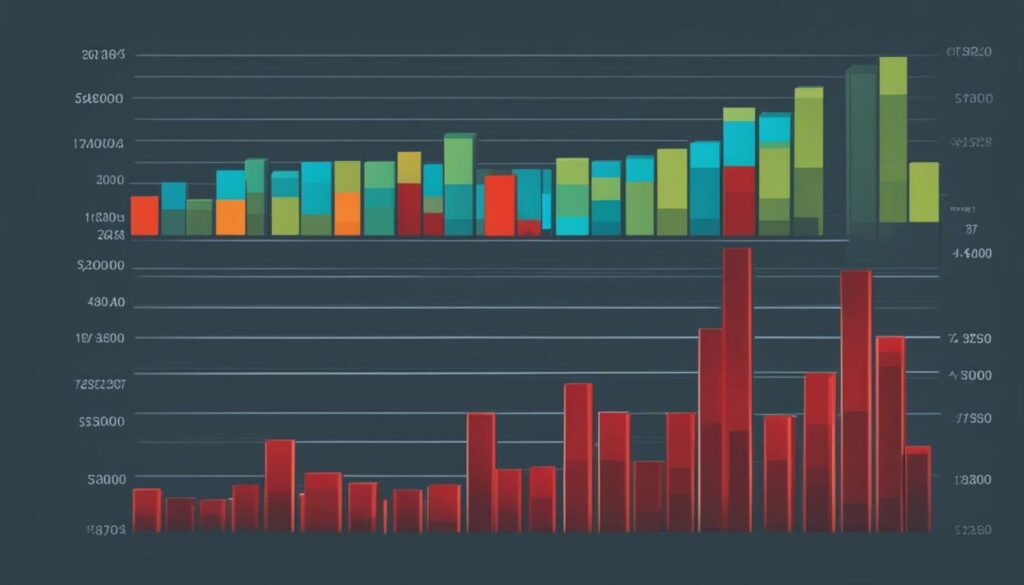
Calculating Credit Scores: FICO vs. VantageScore
Two commonly used models for calculating credit scores are the FICO model, developed by Fair Isaac Corporation, and the VantageScore model, both of which have a significant relationship with loan approvals. These models assess an individual’s creditworthiness based on various factors and provide lenders with a numerical representation of their credit risk.
The FICO model is widely used by credit bureaus and has become a standard in the lending industry. It evaluates credit scores on a scale ranging from 300 to 850, with a higher score indicating a lower credit risk. The FICO model takes into account factors such as payment history, amounts owed, length of credit history, credit mix, and new credit. Each factor carries a different weight in the calculation, and the specific algorithm used may vary slightly between credit bureaus.
The VantageScore model, on the other hand, was jointly developed by the three major credit bureaus – Experian, TransUnion, and Equifax. It also uses a scoring range from 300 to 850, but places a greater emphasis on more recent credit history and trends. The VantageScore model considers similar factors as the FICO model, including payment history, credit utilization, length of credit history, credit mix, and new credit. However, the weight assigned to each factor may differ from the FICO model.
While both models serve the same purpose of assessing creditworthiness, lenders may have a preference for either the FICO or VantageScore model. It’s important for individuals to understand which model their lender uses and take steps to maintain a good credit score based on that specific model. Regularly reviewing credit reports, addressing any discrepancies, and practicing responsible credit management can positively impact credit scores and increase the chances of loan approval.
| Factors Considered | FICO Model | VantageScore Model |
|---|---|---|
| Payment History | 35% | 40% |
| Amounts Owed | 30% | 20% |
| Length of Credit History | 15% | 21% |
| Credit Mix | 10% | 11% |
| New Credit | 10% | 5% |
Understanding the intricacies of credit scoring models can help individuals make informed financial decisions and take appropriate actions to improve their credit scores. It’s important to remember that credit scores are just one aspect lenders consider when assessing loan applications. Factors such as income, employment history, and existing debts also play a role in determining loan eligibility. By prioritizing responsible financial management and maintaining a strong credit profile, individuals can increase their chances of loan approval and secure more favorable terms.

Credit scores are influenced by several factors, including payment history, amounts owed, length of credit history, credit mix, and the presence of new credit, all of which play a role in loan approval. Understanding these factors can help individuals take the necessary steps to improve their credit scores and increase their chances of getting approved for loans with favorable terms and lower interest rates.
The components of credit scores include:
- Payment history: This is one of the most significant factors considered in credit scores. Lenders want to see a consistent record of on-time payments. Late payments, missed payments, or defaults can negatively impact credit scores and raise concerns about an individual’s financial responsibility.
- Amounts owed: The amount of debt an individual has relative to their credit limits can also affect their credit scores. High credit card balances or being close to the credit limit can signal a higher risk of being unable to manage debts, leading to lower credit scores.
- Length of credit history: The length of time an individual has had credit accounts is another critical factor. Lenders generally prefer borrowers with a longer credit history as it provides a more comprehensive picture of their financial behavior and creditworthiness.
- Credit mix: Lenders like to see a diverse mix of credit types such as credit cards, mortgages, auto loans, and student loans. Having different types of credit accounts can demonstrate an individual’s ability to manage various financial obligations responsibly.
- New credit: Opening several new credit accounts within a short period of time can raise concerns about an individual’s ability to handle additional debt. It’s important to be cautious when applying for new credit, as it can temporarily lower credit scores.
It’s worth noting that while these factors heavily influence credit scores, other factors such as income, employment history, and current debts are also considered by lenders when determining loan approval. However, maintaining a positive payment history, keeping credit utilization low, and demonstrating responsible credit management practices can significantly improve credit scores and increase the chances of loan approval.
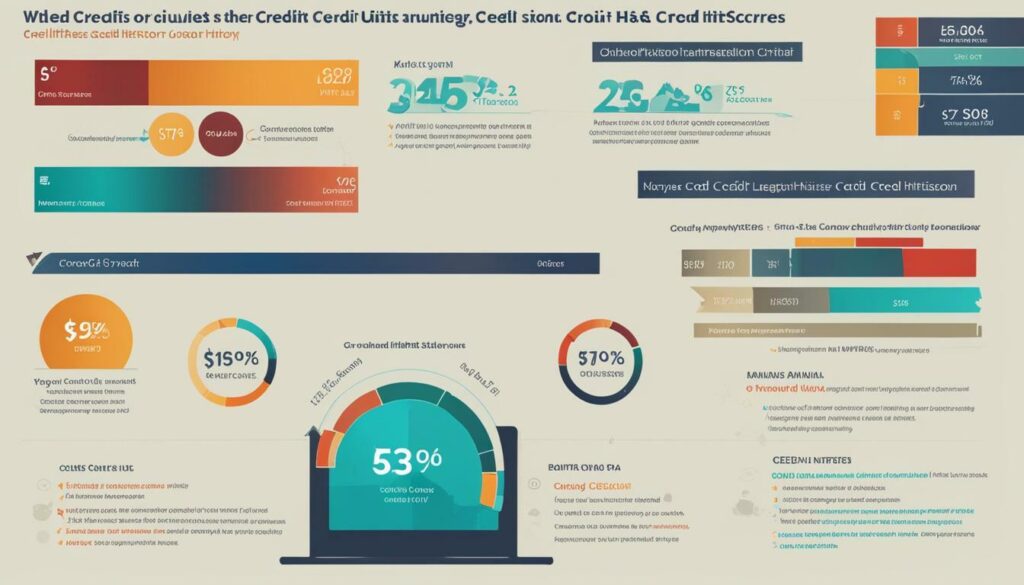
Improving credit scores takes time and effort, but the benefits are worth it. Higher credit scores can lead to more favorable loan terms, lower borrowing costs, and greater financial opportunities. Monitoring credit reports regularly and addressing any errors or discrepancies can also contribute to credit improvement and maintenance.
Ultimately, understanding the factors considered in credit scores and taking proactive steps to improve them can empower individuals to make informed financial decisions, secure loans with better terms, and achieve their financial goals.
Enhancing Credit Scores for Loan Approval
Boosting your credit score is essential for successful loan applications, as a higher credit score increases your chances of approval and enhances your negotiating power for better loan terms. To improve your credit score, there are several steps you can take.
1. Decrease Credit Utilization: One of the key factors considered in credit scores is the amount owed. To improve your credit score, aim to keep your credit utilization ratio below 30%. This means using only 30% or less of your available credit. Paying off credit card balances and reducing outstanding debts can significantly boost your credit score.
2. Focus on On-Time Payments: Payment history is another crucial component of credit scores. Make it a priority to pay your bills on time each month. Late payments can have a negative impact on your credit score. Set up automatic payments or reminders to ensure you don’t miss any due dates.
3. Avoid New Accounts: Opening new credit accounts can temporarily lower your credit score. If you’re planning to apply for a loan in the near future, avoid opening new credit cards or taking on additional loans. Instead, focus on managing your existing accounts responsibly.
Table: Components of Credit Scores
| Component | Description |
|---|---|
| Payment History | Records of your past payment behavior, including any missed or late payments. |
| Amounts Owed | The total amount of debt you owe, including credit card balances and outstanding loans. |
| Length of Credit History | The length of time you’ve had credit accounts open. |
| Credit Mix | The variety of credit accounts you have, such as credit cards, mortgages, and student loans. |
| New Credit | The number of recently opened accounts and credit inquiries. |
Improving your credit score is a gradual process that requires consistent effort and responsible financial management. Review your credit report regularly to identify any errors or discrepancies that could be impacting your score. By following these steps and maintaining good credit habits, you’ll be on your way to a healthier credit score and better loan opportunities.
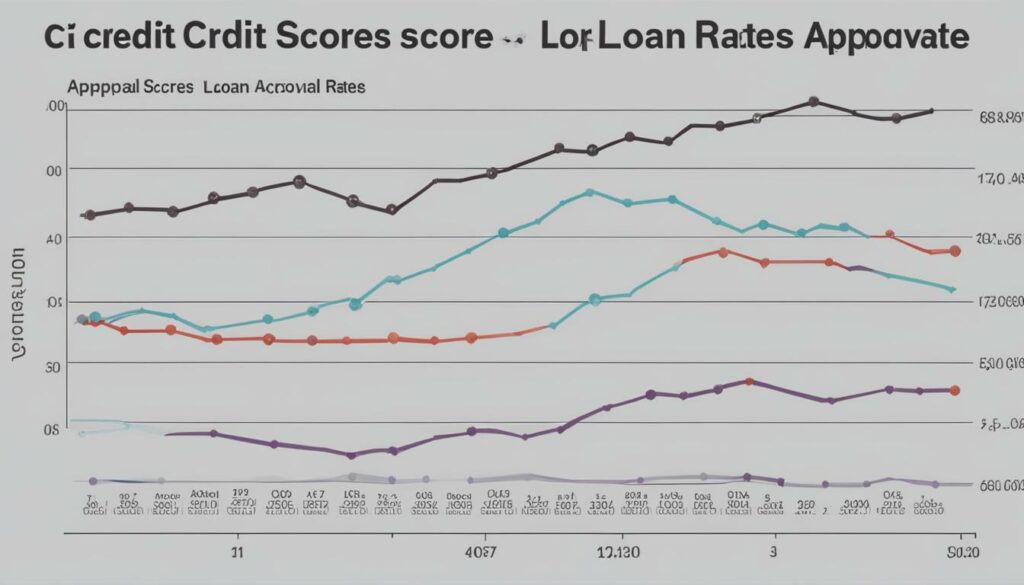
To find the best rates for your loan, it is important to check your credit scores, compare rates from various lenders, and understand the additional criteria lenders consider for approval. Your credit score plays a significant role in determining the interest rate you qualify for, as well as the terms and conditions of your loan. A higher credit score generally translates to lower borrowing costs and more favorable loan terms.
Start by checking your credit scores from the three major credit bureaus: Equifax, Experian, and TransUnion. This will give you an idea of where you stand and allow you to identify any potential errors or discrepancies in your credit reports. Remember, higher credit scores generally result in better loan offers, so take the time to review and improve your scores before applying for a loan.
“To find the best rates for your loan, it is important to check your credit scores, compare rates from various lenders, and understand the additional criteria lenders consider for approval.”
Next, compare rates from different lenders to ensure you’re getting the most competitive offer. Look beyond just the interest rate and consider factors such as fees, repayment terms, and customer reviews. It’s also important to understand the other requirements lenders consider for loan approval. These may include your income, employment history, debt-to-income ratio, and any existing debts you may have.
Remember, finding the best loan rates requires careful research and consideration. By checking your credit scores, comparing rates from different lenders, and understanding the additional criteria for approval, you can ensure you’re getting the most favorable loan terms available. Take control of your financial future by making informed decisions and securing the best rates for your loan.

Understanding the impact of credit scores on loan approvals is crucial in shaping your financial future. Lenders use credit scores to evaluate the risk associated with lending money and determine the interest rate you’ll be offered. By managing your credit responsibly and staying vigilant with credit monitoring, you can improve your borrowing power and unlock more financial opportunities.
Credit scores are calculated using different models, such as the FICO model developed by Fair Isaac Corporation and the VantageScore model. These models take into account factors such as payment history, amounts owed, length of credit history, credit mix, and new credit. Maintaining a good credit score increases your chances of loan approval and can lead to lower interest rates.
It’s important to understand that credit scores are not the only factor considered in loan approvals. Lenders also assess your income, employment history, and current debts. However, boosting your credit score before applying for a loan can significantly improve your chances of approval and more favorable terms.
To find the best loan rates, it’s essential to check your credit scores from reliable sources, compare rates from different lenders, and be aware of the other requirements for loan approval. By being proactive in managing your credit and understanding the lending landscape, you can make informed decisions and secure the most favorable loan terms available to you.
In conclusion, credit scores have a significant impact on loan approvals and can determine the terms and conditions of credit. Responsible financial management, including maintaining a good credit score and regular monitoring of your credit reports, are essential for credit improvement and maintenance. By taking control of your credit, you can improve your financial standing, reduce borrowing costs, and open up more opportunities for achieving your financial goals.
FAQ
Q: What is the impact of credit scores on loan approvals?
A: Credit scores have a significant impact on loan approvals. Lenders use credit scores to evaluate the risk associated with lending money and determine the interest rate. A good credit score increases the chances of loan approval and lower interest rates.
Q: How are credit scores calculated?
A: Credit scores can be calculated using different models such as the FICO model and VantageScore model. Factors considered in credit scores include payment history, amounts owed, length of credit history, credit mix, and new credit.
Q: How can I improve my credit scores for loan approval?
A: To improve credit scores for loan approval, focus on decreasing credit utilization, making on-time payments, and avoiding new accounts. Responsible financial management is key to boosting credit scores before applying for a loan.
Q: How can I find the best loan rates?
A: To find the best loan rates, it is important to check credit scores, compare rates from different lenders, and understand the other requirements for loan approval. Shopping around and doing research can help identify the most favorable loan terms.
Q: What other factors affect eligibility for a loan?
A: In addition to credit scores, factors such as income, employment, and current debts also affect eligibility for a loan. Lenders consider these factors to assess an individual’s ability to repay the loan.
Ready to Improve Your Credit?
Disputing TUIC errors is step one. Step two? Boost your score by reporting utility payments with CreditScoreIQ.
Get Started Now (Only $1 Trial) →3-bureau reporting • $1M identity insurance • Dark web monitoring



